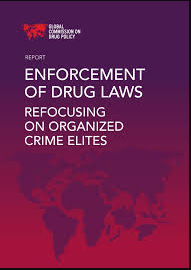Drug laws vary widely from country to country. And understanding the regulations of any given nation can be challenging. In this blog post, we will take a look at the different drug laws around the world, focusing on Europe, the United States, and South America. We will discuss the regulations in each region, including the types of drugs that are illegal and the punishments for possession or trafficking. By the end of this post, you should have a better understanding of international drug laws and how they differ from one another.
Read More: Marcy Resnik’s Women Mentorship
Drug Laws Across Europe
When it comes to drug laws, Europe is a continent full of surprises. While certain European countries have more lenient drug laws than others. All European countries have some type of law that prohibits drug use and selling. The most stringent laws are typically found in EU member states that have joined the European Union (EU), such as Italy, Spain, and Greece.
While all EU member states have similar drug laws, there are a few key differences. For example, France has much more lenient marijuana legislation than other EU countries do. In addition, the Netherlands has one of the most liberal policies towards cannabis use in the world. And lastly, while every EU country considers possession and sale of hard drugs to be criminal offenses punishable by law. There is considerable variation in how these crimes are actually enforced.
Public opinion about drug laws across Europe is highly divided. On one side are those who believe that drug prohibition does not work. And that these harsh penalties only serve to criminalize young people and minorities. On the other side are those who believe that tough penalties are necessary to protect society from harm caused by harmful drugs. It is important to note that while public opinion may be divided on this issue. It does not necessarily mean that lawmakers will take into account public opinion when drafting new drug legislation or implementing existing legislation in practice.
As you can see from the information above, Drug Laws Across Europe can be complex and sensitive topics for lawmakers and citizens alike. That’s why it’s important to stay up-to-date on current trends. So you can understand how these laws impact social and public health – both now and into the future.
Drug Laws in the United States
The Controlled Substance Act (CSA) is a federal law that has been in place in the United States since 1970. The CSA is a complex and extensive law, and it has had a significant impact on American drug policy. This blog will provide an overview of the history of the CSA. As well as the DEA’s classification system for evaluating drugs. We will also discuss the differences between state and federal drug laws. As well as regulations surrounding distribution, prescription, possession, and personal use of controlled substances. Finally, we will look at trends in international drug laws and their implications on US drug policy. By understanding how these laws have evolved over time, you can better understand how US drug policies are enforced. And what effects legalization or decriminalization might have on them.
Drug Laws in South America
South America is a region of the world with a rich history and culture. However, it is also home to some of the most restrictive drug laws in the world. In this blog, we will overview drug laws in South America and discuss the different differences between countries and their regulations. We will also discuss some examples of current policies in different countries and how they are impacting citizens.
Overall, drug law enforcement in South America is inconsistent and often ineffective. This has led to an increase in drug trafficking and addiction rates. As well as violence and crime related to drugs. There is a lot of potential for reform and decriminalization of drug laws in South America. But it will require concerted effort from all stakeholders involved. To make the most informed decisions about navigating these complex legal systems, it is important to have accurate information about what’s happening in your specific country.
Finally, we would like to recommend three strategies that individuals can use when navigating complex legal systems. Stay informed (through news sources or social media), get involved with local organizations that support reform (such as Amnesty International), or seek professional legal assistance if needed. With enough effort, anyone can make a positive impact on drug law enforcement in South America!
Also Read More: Drug Possession Charges-Penalties and Defenses in Criminal Law
A Closer Look at the Legal Status of Drugs in South America
The legal status of drugs in South America is a complex and controversial issue. While many countries in South America have strict drug laws, others have more lenient policies. This article will explore the legal status of drugs in different countries in the region. As well as the implications of criminal drug policies. We will also look at how drug laws affect public health and safety, international cooperation in the fight against drug trafficking, availability of treatment and education programs for addicted individuals, and analyze trends in drug law enforcement and sentencing practices. Finally, we’ll discuss possible solutions to reduce the impact of drugs in South America.
When discussing the legal status of drugs throughout South America, it’s important to remember that each country has its own laws and regulations. This means that what is illegal in one country may be allowable under another policy regime. For example, while marijuana is illegal throughout most of South America. It is decriminalized or legalized in some countries (like Uruguay). This illustrates just how complicated the topic can be!
One way that criminal drug policies affect public health and safety is by driving addicts into crime to support their habit. Drug trafficking organizations use this dynamic to their advantage. By making illicit drugs more expensive than licit alternatives (like cigarettes), they compel people to turn to crime to afford their needs. This has serious implications for public safety as well as social stability. Organized crime thrives when addiction fuels violence and criminality instead of helping people get treatment.
International cooperation against drug trafficking is essential if we want to stop the flow of illicit substances into South American countries. However, this cooperation faces many challenges due to jurisdictional disputes between governments and a lack of trust between different parties involved with narcotics trafficking. Despite these challenges, progress has been made over recent years. Through intensified law enforcement efforts and greater coordination among regional organizations like UNODC (the United Nations Office on Drugs & Crime).
While there are many issues facing society when it comes to drugs – from addiction rehabilitation programs to effective policing strategies. There are also opportunities for improvement. By exploring these issues further, we can begin developing solutions that make a meaningful impact on regional problems like substance abuse disorder.
In Summary
In conclusion, it is clear that international drug laws vary greatly from one nation to the next. While certain countries have more lenient drug laws than others. All nations have some form of legislation designed to protect their populations from the dangers of drugs. Understanding these laws and how they differ from one another is essential for making informed decisions about how to navigate complex legal systems and make a positive impact on public health and safety. We hope this blog post has provided you with useful information about international drug laws. So that you can better understand the issues at hand and work towards finding solutions that benefit everyone.











Leave a Review